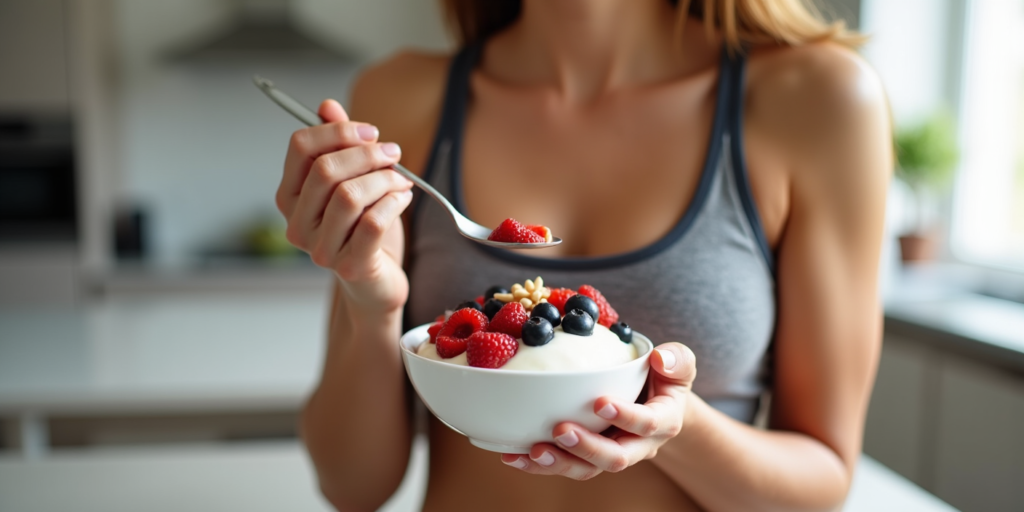Expert-Backed Insights for a Leaner Midsection
Belly fat can be a stubborn issue for many people. It’s often linked to diet choices rather than lack of exercise. Some foods can trigger fat storage in the abdomen more than others. This problem isn’t always simple, as digestive issues can also play a role.
Gut health is key to managing abdominal fat. Even when eating healthy foods, some people may experience bloating and inflammation, making the belly appear larger.
By avoiding certain foods, it’s possible to reduce belly fat and improve overall digestive health.
Key Takeaways
- Diet choices have a big impact on belly fat accumulation
- Digestive issues can contribute to a larger-looking abdomen
- Avoiding specific foods may help reduce belly fat and improve gut health
Foods to Avoid for Reducing Belly Fat
One: Sugary items and sweetened beverages
Sugary foods and drinks are big problems for belly fat. They have lots of empty calories, which come from glucose and fructose. The body turns extra sugar into fat, often around the belly.
Many people don’t know how much sugar is in their food. It’s smart to read food labels, but some labels are hard to read. Use a phone to look up strange ingredients. This helps make better food choices.
Packaged foods can have hidden sugars. Even “healthy” foods like gluten-free bread can be high in sugar. Too much sugar over time can lead to health issues like diabetes.
Make the best choice by cutting out sugary foods and drinks. You can also make healthier versions at home, which gives you more control over the ingredients.
Here’s a list of common high-sugar items to watch out for:
- Soda
- Fruit juices
- Candy
- Baked goods
- Flavored yogurt
- Breakfast cereals
The best choice is to eliminate sugary foods and drinks or making healthier versions at home. This gives you more control over the ingredients.

Two: Opt for natural foods over processed alternatives.
Natural foods offer more benefits than processed options. Whole foods like lean meats, eggs, fruits, and vegetables provide essential nutrients that support health and weight management. These foods help control hunger and cravings better than quick alternatives.
Eating real, unprocessed meals is ideal when time allows. This approach:
- Boosts metabolism
- Improves overall health
- Aids fat loss goals
- Increases feelings of fullness
- Reduces appetite
While protein powders can be convenient, they lack the nutritional value of whole-food meals. Taking time to prepare and eat proper meals makes a big difference. It helps people feel satisfied and avoid excess snacking.
The goal is to reduce hunger naturally through nutrient-dense foods rather than relying on artificial options. This strategy leads to better appetite control and sustainable results.

Three: The impact of refined carbs on weight gain
Certain carbohydrates can lead to increased fat storage in the body. Refined products like pastries and white bread are best avoided. These highly processed foods offer little nutritional value.
Better choices include:
- Oats
- Sweet potatoes
- Quinoa
- Lentils
These wholesome options provide more nutrients and fibre. They also have a lower impact on blood sugar levels.
Small amounts of sourdough bread may be acceptable, as it contains some protein from fermentation. Carb cycling can be an effective approach for those wanting to reduce body fat while still eating carbs. This involves alternating between higher and lower carb intake on different days.
Four: Overeating healthy foods
Maintaining a balanced diet is crucial for losing belly fat, but even nutritious foods can contribute to weight gain if consumed excessively. A simple method to control portions uses hand measurements as guides. This approach helps people eat appropriate amounts, especially when dining out or travelling.
For protein, aim for a serving size roughly equal to your palm. Carbohydrate portions should be about the size of your fist. Fats can be measured using the top part of your index finger as a guide. Vegetables are an exception – eat plenty of these nutrient-rich foods.
Here’s a quick reference table:
| Food Group | Portion Size Guide |
|---|---|
| Protein | Palm |
| Carbs | Fist |
| Fats | Top of index finger |
| Vegetables | Unlimited |
These guidelines provide a starting point. Some individuals may require larger portions based on activity level, body composition, and personal goals. Adjustments can be made to support fat loss while maintaining energy and nutrition.
Common Questions About Foods That Cause Belly Fat
Which foods should women avoid to reduce stomach fat?
Women looking to slim their midsection should limit these foods:
• Sugary drinks like soda and fruit juices
• Refined grains like white bread and pasta
• Processed snacks high in trans fats
• Alcohol, especially beer
Focusing on whole, unprocessed foods is key. Lean proteins, fruits, vegetables, and whole grains support a flatter belly.
Which foods are widely known to add belly fat?
Some foods commonly linked to increased abdominal fat include:
• Fast food and fried foods
• Baked goods with added sugars
• Sugary breakfast cereals
• Processed meats like hot dogs
These tend to be high in calories, unhealthy fats, and added sugars that can accumulate as belly fat.
What are the worst food choices for belly fat?
The foods most likely to cause belly fat gain are:
- Foods with trans fats
- Foods with added sugars
- Refined carbohydrates
- Excessive alcohol
These can lead to inflammation and hormonal changes that promote fat storage around the midsection.
How can diet changes reduce belly fat in a week?
Quick diet tweaks to help reduce bloating include:
• Cutting out processed foods
• Limiting sodium intake
• Avoiding carbonated drinks
• Eating more fibre-rich foods
While fat loss takes time, these changes can reduce water retention and bloating for a flatter look.
Is there one main food responsible for belly fat?
No single food is solely to blame for belly fat. However, added sugars in processed foods are a major contributor. Limiting sugar-sweetened beverages and snacks can significantly impact belly fat accumulation.
Which “healthy” foods might still cause belly fat?
Some foods perceived as healthy can still contribute to belly fat:
• Granola is often high in sugar.
• Flavored yogurts have added sugars.
• Dried fruits have concentrated sugars.
• Smoothies can be high-calorie.
Portion control is important even with nutritious foods. Excess calories from any source can lead to fat gain.
Download your low-carb, high-protein dinner recipe book with two bonuses here.
I appreciate your support.
Feel free to visit my website at www.angedim.com/recipes for healthy recipes to help heal your body.
You can also visit my YouTube Channel for more recipes & health advice here: https://bit.ly/4aN7m1p
